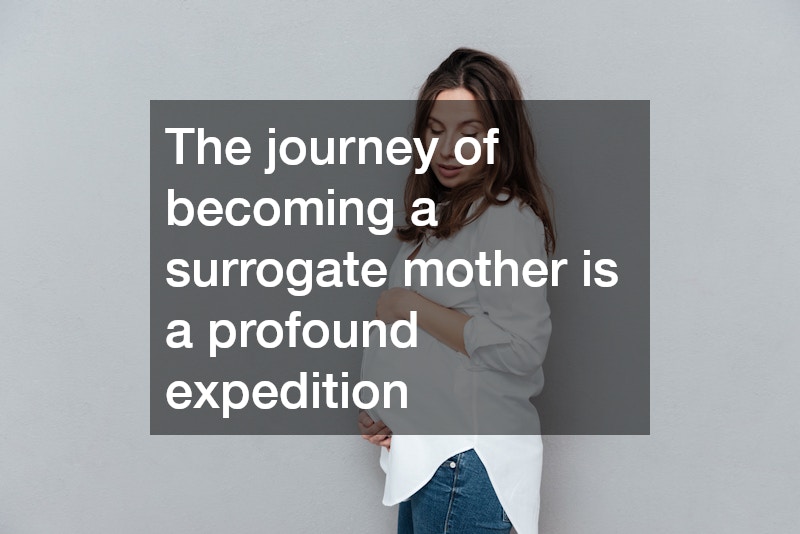In recent years, surrogacy has garnered considerable attention as an option for individuals and couples unable to conceive naturally. This method has become an integral part of modern society, providing hope and opportunities for many aspiring parents. If you’re wondering, ” How do you become a surrogate?”, read on. This article delves into the comprehensive journey that surrogate mothers embark on, highlighting the motivations, processes, and experiences that define their path.
Why Do Women Choose to Become Surrogate Mothers?
Personal Motivations and Experiences
Many women choose to become surrogate mothers driven by deeply personal experiences. They often feel a profound desire to help those who are unable to conceive, deriving immense satisfaction from the ability to transform lives. Often, a history of smooth pregnancies and a strong support network further inspire women to explore surrogacy as a personal calling.
Surrogate mothers frequently cite altruism as a driving force behind their decision. They appreciate the opportunity to give the gift of parenthood and relish the chance to bond with intended parents while fulfilling this noble task. For others, the experience of giving life serves as a reaffirmation of their own personal strength and resilience.
Financial Considerations and Benefits
Financial incentives play a significant role in the decision to become a surrogate mother. Compensation often enables women to pursue personal goals such as higher education, home ownership, or starting a small business. This financial boost is frequently cited as a means to provide a better future for their own children.
Surrogacy offers financial stability that may otherwise be unattainable for some women. It provides a sense of economic security, allowing surrogates to address debts and secure their family’s financial well-being. This financial aspect, combined with a well-structured compensation plan, also ensures that surrogates are adequately supported throughout their journey.
Emotional and Psychological Factors
Becoming a surrogate mother requires profound psychological strength and emotional resilience. Many women find comfort in the supportive community that exists among surrogate mothers, offering guidance and shared experiences. This emotional network becomes a vital resource as they navigate the challenges and triumphs of surrogacy.
The emotional bond formed between the surrogate and the intended parents often enhances the journey. Surrogates experience a deep connection, feeling an intrinsic joy in contributing to the intended parents’ happiness. For many, the emotional fulfillment mirrors the joy they experienced during their own pregnancies, reinforcing their decision to embark on this path.
What is the Process of Becoming a Surrogate Mother?
Initial Screening and Requirements
Embarking on the surrogacy journey begins with a thorough initial screening process. This stage involves comprehensive medical evaluations to ensure a surrogate candidate’s physical readiness for pregnancy. Psychological assessments are also conducted to confirm emotional stability and preparedness for the complexities of surrogacy.
Potential surrogates undergo rigorous health checks to ensure they meet the necessary medical criteria. These assessments include a review of previous pregnancy history, lifestyle considerations, and any underlying health issues. Meeting the medical requirements is crucial for the safety and success of both the surrogate and the intended pregnancy.
Beyond medical evaluations, candidates are also evaluated for their personal motivations and support systems. Agencies and clinics assess whether the potential surrogate’s family and personal circumstances are conducive to undertaking this responsibility. This holistic evaluation ensures that the surrogate is fully prepared for the demands of the journey ahead.
Legal Procedures and Contracts
Navigating the legal landscape of surrogacy is a critical step in the process. Legal agreements safeguard the rights and responsibilities of all parties involved, providing clarity and protection. Detailed contracts outline the terms, including financial compensation, legal parentage, and involvement in the pregnancy journey.
Legal procedures are designed to shield both surrogate and intended parents, ensuring that all parties are well-represented and protected throughout. Experienced legal professionals facilitate a clear understanding of the surrogacy contract and address any potential issues promptly. These legal frameworks are vital in fostering trust among all parties involved in the surrogacy arrangement.
Contracts are crafted to comply with the regulatory frameworks of respective jurisdictions, accommodating any legal variations by location. It is crucial that all parties engage in open, transparent discussions to address expectations and responsibilities. Ultimately, the legal procedures and contracts work to preserve the integrity of the surrogacy journey, reinforcing the best interests of all stakeholders.
Pregnancy and Delivery Experience
The surrogate’s pregnancy journey is marked by significant milestones and experiences unique to this path. Regular medical check-ups and continuous communication with intended parents become integral parts of the process. Surrogates take immense pride in the progress of the pregnancy, often documenting every step to share with the intended parents.
The emotional bond with the baby grows during the pregnancy, with each movement and milestone celebrated by both surrogate and intended parents. This shared experience fosters trust and camaraderie, strengthening the relationship between all involved. The surrogate mother takes on the dual responsibility of nurturing another’s child while preparing for the eventual transition post-delivery.
As delivery approaches, meticulous planning ensures a seamless and supported experience. The birth is usually a coordinated event, wherein intended parents and healthcare professionals work closely with the surrogate. The culmination of this journey is an emotional and fulfilling moment, symbolizing the culmination of months of commitment, care, and cooperation.
The journey of becoming a surrogate mother is a profound expedition, marked by personal, financial, emotional, and legal landmarks. This path is characterized not only by the act of carrying a child but also by the relationships and experiences fostered throughout the process. Surrogacy represents a beautiful collaboration of hope and humanity, creating families and bonds that transcend the ordinary facets of life.
.


